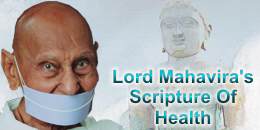
Freud confined the chitta to the mind, but Jung regarded the mind and the chitta as divided into two. Freud conceived of the mind as conscious and sub-conscious. Jung add the concept of two sections of the mind: conscious and unconscious; the two together as a unit form the chitta.
Jung has analysed the chitta very nicely. There was a very great learned scholar named Bhavanishankar Upadhyaya at Udaipur. He wrote a book about Jung called The Analytical Psychology of Karl Gustav Jung. As a matter of fact, while considering in detail Jung's concept, it seems that he had reached very close to the chitta.
Let us think about the chitta. The first question is: Who is the one who knows'? Who is the knower? We cannot think of the mind as that which knows nor experiences. The mind cannot be that which knows and experiences, the two functions which are the very basis of knowledge and science. The nature of the mind is altogether different. The mind is unsteady, it is unstable. The chitta is constant, it is long-lasting. The entire flow of our consciousness emanates from there.
Avarana Chitta
The first is the avarana chitta. It envelopes the consciousness. A current, which does not let the consciousness be uncovered, emanates from the subtle body. This current continuously envelopes the consciousness. But it brings no disorder of any kind. It merely acts as a cover. It is like a curtain which makes the direct access impossible.
Antaraya Chitta
The second is the antaraya chitta which creates obstacles.
There is a current coming from within which creates an obstacle. The individual cannot act, even think as he wishes. There is always some obstacle or the other in his action. The antaraya chitta is responsible for it.
Mithyatva Chitta
The third is the mithyatva chitta. The delusory outlook always persists. We cannot reach the Truth, because of the delusory outlook. What is the purpose of the present discussion about positive and negative feelings? The delusory outlook is primarily responsible for the absence of positive feelings. This does not permit the right view, it does not allow one to assimilate the reality. It changes one's outlook. The reality is something else, but one's experience or conviction tends to be different. It leads to the reversal of knowledge. What has been described in philosophical world as vimohatmaka khyati, anatma-khyati or the reversal of knowledge has its root the delusory outlook.
Moha Chitta
The fourth is the moha-chitta. This does not let one's character develop properly. It does not allow one to have the sense of self-restraint, sense of fast. It does not allow him to have spiritual development. It always inspires one towards attachment and aversion. Man continues to be fascinated by the activities prompted by attachment and malevolence.
 Acharya Mahaprajna
Acharya Mahaprajna

